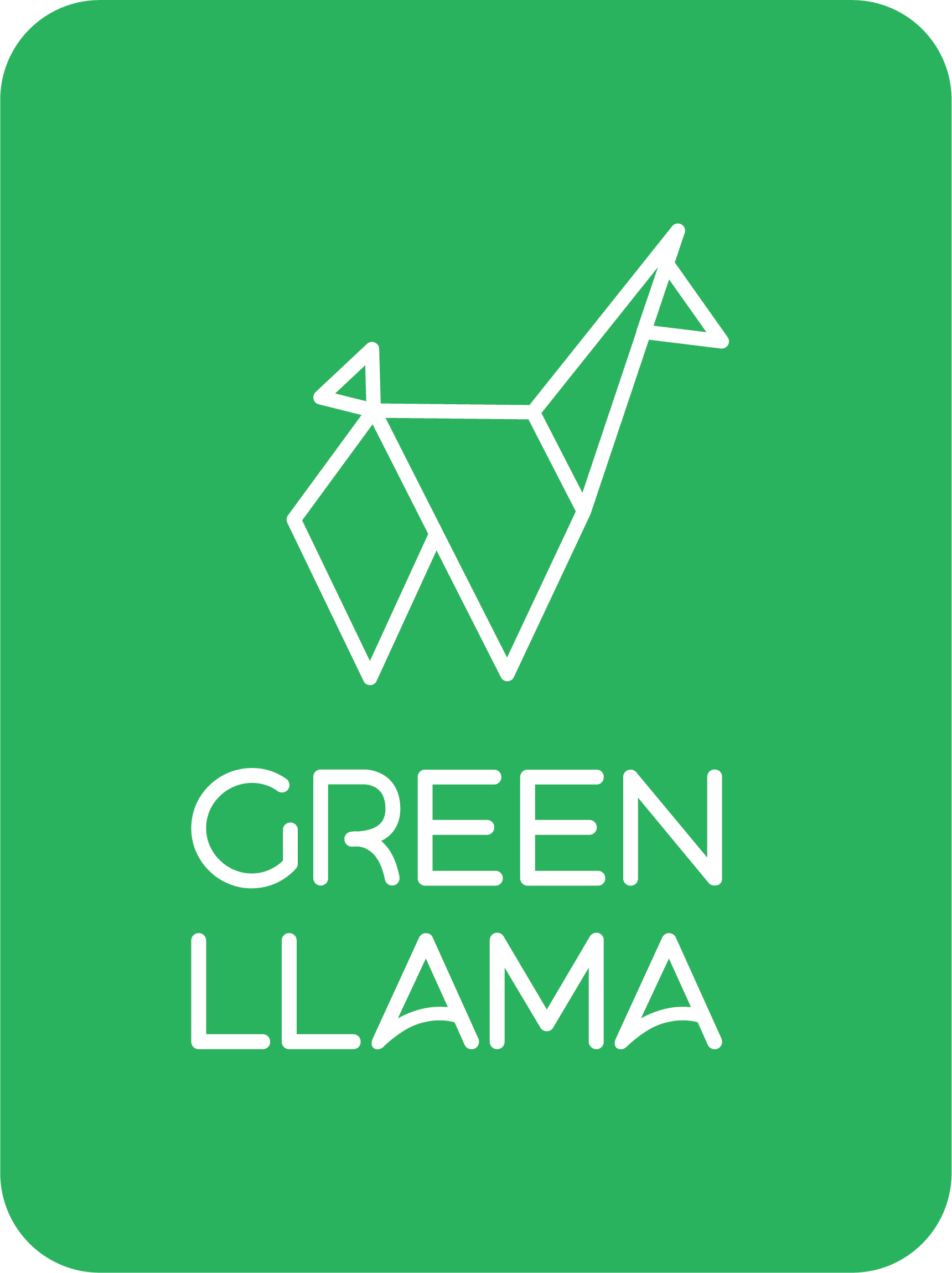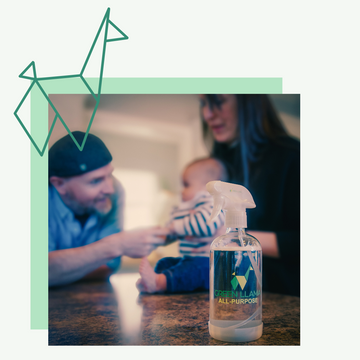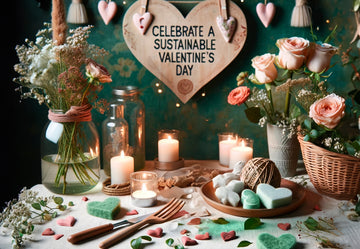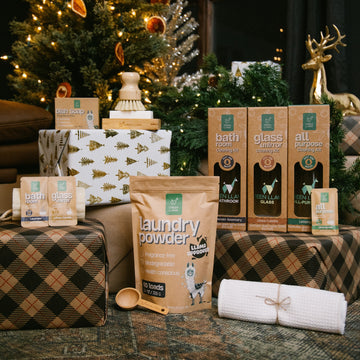Turning Over a New Leaf: Making safer to choices for your family
by Matt Keasey on Dec 31, 2023
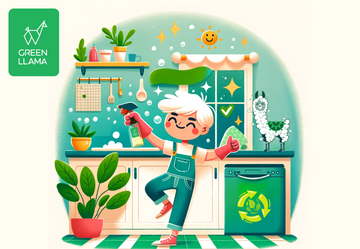
Hello, Green Llama readers! This is Matt, and I’m excited to share with you some tips and tricks on how to live a more sustainable and eco-friendly life in 2024. As you may know, plastic pollution is one of the biggest environmental challenges we face today, affecting our oceans, wildlife, and health. According to WWF, we produce about 300 million tons of plastic waste every year, and only 9% of it gets recycled12- that means the rest ends up in landfills, incinerators, or the natural environment, where it can take hundreds of years to decompose.
But plastic is not the only problem. Many of the products we use every day, such as cleaning products, personal care products, and food packaging, contain harmful chemicals that can affect our health and the environment. Some of these chemicals are known or suspected carcinogens, endocrine disruptors, neurotoxins, or allergens. For example, a study from Norway found that regular use of cleaning sprays may cause a decline in lung function that’s comparable to smoking 20 cigarettes per day34. Another study from the American Contact Dermatitis Society named methylisothiazolinone, a preservative used in many cosmetics, lotions, and makeup removers, as the Allergen of the Year for 2013, due to its high potential to cause skin reactions56.
But don’t despair, there is hope! More and more people are joining the zero waste movement, which aims to reduce the amount of trash we generate and adopt a circular economy model, where nothing is wasted and everything is reused or recycled. Zero waste living is not only good for the planet, but also for your wallet, your health, and your happiness. It can help you save money, simplify your life, and connect with your community.
So, how can you get started on your zero waste and healthy journey? Well, the first step is to become aware of your current consumption habits and identify the areas where you can make changes. You can start by doing a trash audit, where you collect and analyze your waste for a week or a month, and see what kind of items you throw away the most. This will help you pinpoint the sources of your waste and find alternatives.
For example, you may notice that you use a lot of single-use items, such as plastic bottles, bags, cups, straws, cutlery, etc. These items are often unnecessary and can be easily replaced with reusable ones, such as water bottles, cloth bags, mugs, metal straws, bamboo utensils, etc. You may also notice that you buy a lot of packaged food, which often comes in plastic or other non-recyclable materials. You can reduce this by buying in bulk, using your own containers, and choosing fresh, local, and organic food whenever possible. You can also make your own food, such as bread, yogurt, granola, jam, etc., and avoid processed and pre-made products.
Another source of waste and toxins that you may want to tackle is your personal care and cleaning products. Many of these products contain harmful chemicals, synthetic fragrances, and microplastics, which can affect your health and the environment. You can switch to natural, organic, and cruelty-free products, or even make your own, using simple ingredients like baking soda, vinegar, lemon, coconut oil, etc. You can also use reusable items, such as cloth pads, menstrual cups, safety razors, bamboo toothbrushes, etc., instead of disposable ones.
Of course, these are just some examples of the many ways you can reduce your waste and live more sustainably and healthily. The key is to take it one step at a time, and don’t get overwhelmed by the challenge. Remember, every little action counts, and you are not alone in this journey. There are many resources and communities online that can help you along the way, such as the following zero waste blogs that I recommend you check out:
- A Zero Waste Life by Anita Vandyke, a former engineer and current medical student who shares her scientific and practical approach to zero waste living.
- Zero Waste Chef by Anne-Marie Bonneau, who teaches you how to cook delicious and nutritious food without packaging or waste.
- Zero Waste Home by Bea Johnson, the pioneer of the zero waste lifestyle and the author of the best-selling book of the same name.
- Zero Waste Guy by Jonathan Levy, a sustainability consultant and educator who helps businesses and individuals go zero waste.
- [Going Zero Waste] by Kathryn Kellogg, a blogger and speaker who offers tips, tricks, and recipes for a zero waste life.
- [Package Free Shop] by Lauren Singer, the founder of the online store that sells everything you need to live a zero waste life.
- [One Small Step] by Lucy Biggers, a video journalist who documents her journey to reduce her environmental impact.
- [Dude Making a Difference] by Rob Greenfield, an adventurer and activist who travels the world spreading the message of sustainability and kindness.
I hope you find these blogs inspiring and helpful, and I hope you join me in turning over a new leaf and moving to plastic/waste free and healthy options in 2024. Together, we can make a difference and create a better world for ourselves and future generations. Thank you for reading, and happy new year!
